15 Credits
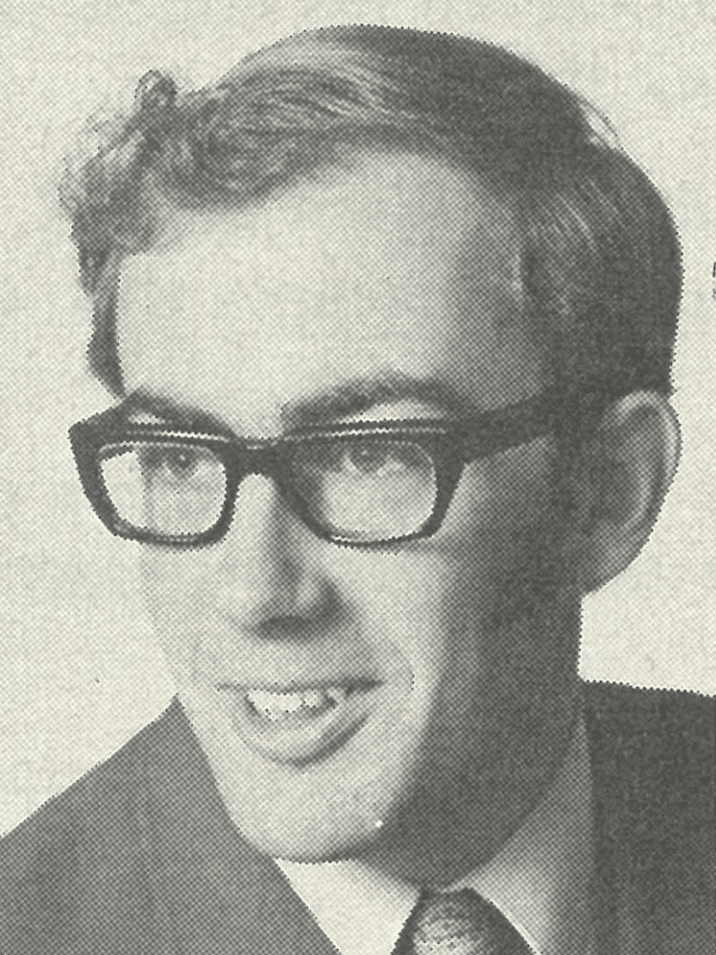
Jim in 1972 as a third-year student
I was at Carey College (then known as Baptist College) from 1969 -1972.
After a long drive from Invercargill to Auckland, it took a while to adjust to the increase in temperature!
Those of us just commencing our life at college had a unique experience. Together with 100’s of other Christian leaders, we attended a multi-day Leadership Training led by the Billy Graham Evangelistic Assn at St. Davids Presbyterian church. Speakers included Billy Graham, Cliff Barrow etc. While it was a short course it impacted many of us throughout the rest of our ministry.
Our main lecturers were Ayson Clifford (Principal), Bob Thompson, and Stan Edgar. I appreciated particularly Ayson’s ability to explore deep theological issues in simple terms. Because the class sizes were relatively small it enabled opportunity for informal discussion.
I (with my wife Lois) was one of the first full time married students. Virtually everyone else lived on the Campus in Victoria Ave, Remuera, while we were in a tiny bed-sitter across the road. Having been given a small black and white TV set, we often entertained students needing a break! In our second year we moved to one of the Arney Cres College flats. This became a great community as we lived alongside folk like Malcolm and Shirley Montgomery, Laurie and Shona Guy, John and Raewyn Garwood. We couldn’t complain about the accommodation, being in the top flat with views all over Auckland city and harbour!
The College family was small in 1969, (8 ministerial students and 4 deaconesses trained in my year). In all, 24 students on Campus. Practically everyone was on the same course (pastoral leadership), shared in the midday catered lunch, social events and Retreats at Waiheke Island, Thames, and Raglan All these resulted in a strong sense of family and established friendships that have lasted a lifetime. The sense of community along with the input from the academic staff and the practical experiences provided, resulted in a strong call to serve the last fifty years with our Baptist family of churches.
Since Carey, we have served at Island Bay/ Berhampore, Long Bay, Te Awamutu, Kaitaia, Darfield and Wanaka.

Warren in 1998 as a third-year student
I’ll never forget studying the uniquely Christian understanding of God as three persons so close, it makes more sense to refer to them as one; where relationship is primary over personhood. And we’re invited in.
Carey gave permission to take creative risks, structure for these to be safe, and company for these to be convivial. Formative years for the mission ahead.
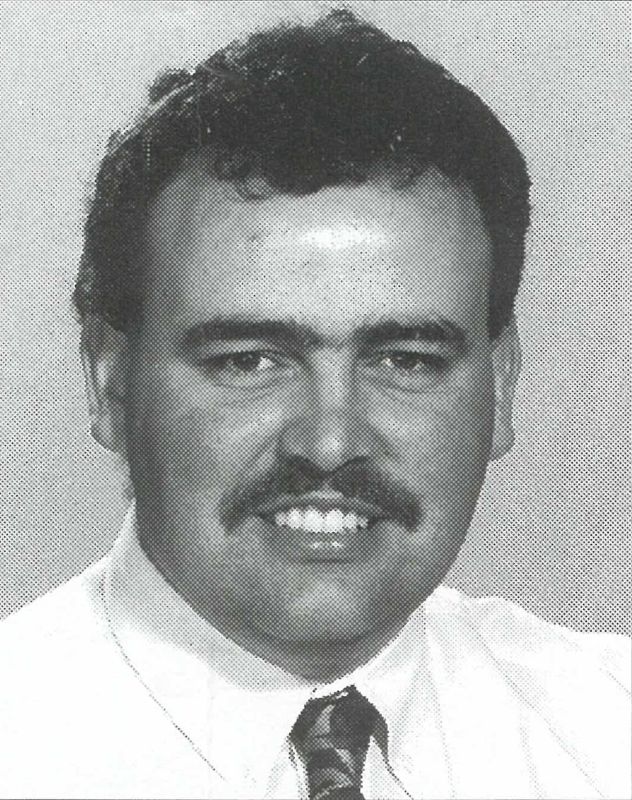
Craig in 1994 as a third-year student from Ōtūmoetai Baptist Church
Firstly, a change of staff was occurring with Dr. Harold Pidwell and Dr Terry Falla returning to their homeland of Australia after many years of service. In came Dr. Laurie Guy and a year later Dr. Tim Bulkely who would lecture in New Testament, Church history and Old Testament respectively. They were supported by Margaret McClure, Dr. Lorna Jenkins and Mike Riddell with principal Brian Smith carrying the systematic theology load. All this academic change may have been enough change for us to cope with, but this was just the first wave.
The real change was happening with the training focus being built around learning the practical skills of ministry. Each student coming into college in 1992 was asked to help plant a church in partnership with other Auckland church planting initiatives. So, college training was now academic and practical. To help clear the diary for this to happen all the college lectures were moved to the beginning of the week. So, three 50-minute lectures per week on one subject were folded into one 3-hour lecture per subject per week. Some of these lectures were held in the evening. This released Thursday, Friday and weekends for study and church planting initiatives. Mission groups filled the Wednesday morning as students and spouses were mentored in small groups by experienced leaders. This helped us focus upon the soft skills of ministry and our spiritual development.
The new training requirement asked for 18 hours a week for church planting initiatives. This placed a big demand upon students who were studying 6-8 full time papers as well as raising families and, in some cases, they held part time jobs needed to pay the bills. So, did it work? As expected, there were mixed results. But the skills of juggling and prioritising were certainly important to learn, and we all had this experience. Some churches were planted. Some didn’t get the momentum. But they were faith inducing and very formative times. My own year group appears to have benefited from this shift in training as 30 years after graduating college the majority of this year group are still in ministry or have moved into retirement.
Change at NZ Baptist Theological college didn’t slow down. In 1993 the decision was made to relocate the college from the original campus on Victoria Avenue in Remuera to Penrose. When Principal Brian Smith explained the process to the students, he described how the Baptist Assembly Council had to approve the shift of location. I asked if that was going to be difficult? Brian said, “of course not because those serving on the Assembly council are my friends”. In that moment I saw how the Baptist family worked. We were and are friends and colleagues in ministry together.
The shift to 473 in the early part of 1994 created lots of disruption to classes and the rhythm of college life. But everyone remained positive and could see the advantages being generated by the shift. During this time the college changed its identity by renaming to become Carey Baptist College. The change of name helped to cement in a new sense of mission purpose. We had moved into a new and exciting chapter in the life of our theological college.

Alan and Pam Utting
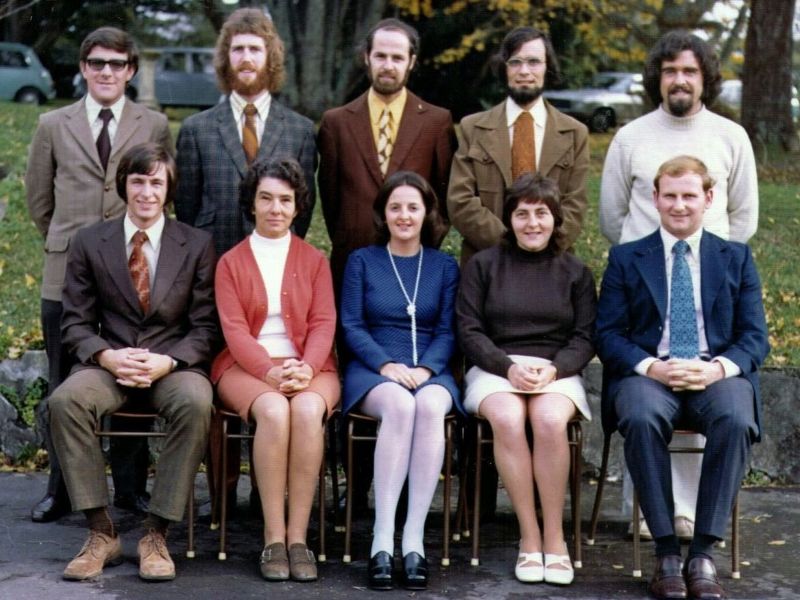
The 1974 year group
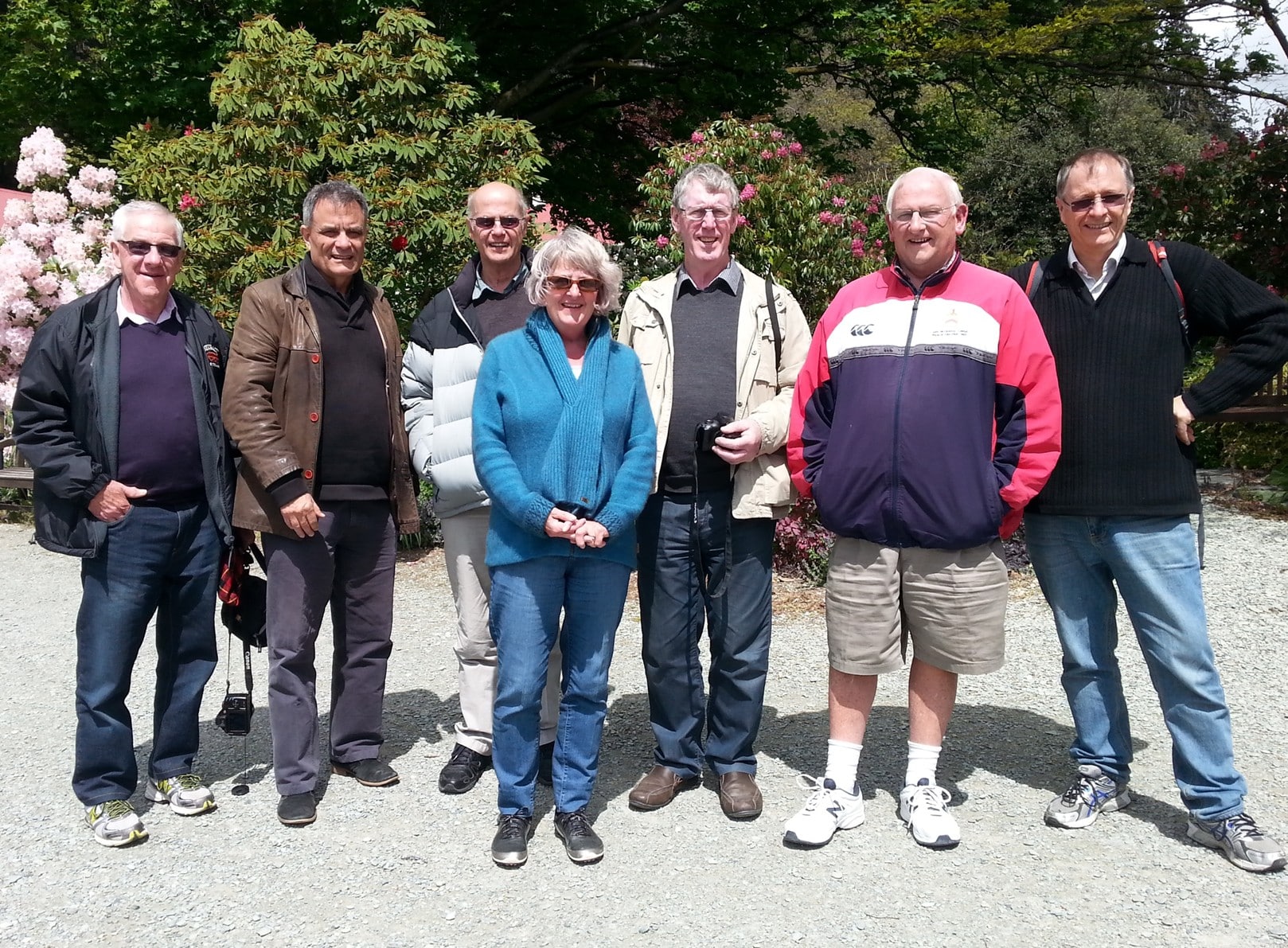
Some of the 1974 year group at a reunion in Queenstown
Unlike many others, we lived outside the College, in the Papatoetoe and Huntly manses. Even so, we felt very much part of the community and shared in many of the memorable moments of those years.
One of the first memories that comes to mind is Roly Scott arriving late to class one day, slipping into the seat beside me, and whispering, “We’re having twins.” Who would have thought they’d be announcing that same news again a few years later?
Another standout moment came during the initial interviews for College. A woman psychologist asked me, “On average, what height is a woman?” I guessed five foot. Amused, she encouraged me to try again, so I offered, “Five foot eight inches.” Fortunately, my lack of anatomical knowledge hasn’t caused too many problems in ministry!
Those mid-seventies years were also significant in the life of the Church, marked by the charismatic renewal movement. I was deeply impacted by the visit of English Bible teacher David Pawson. His teaching stirred in me a greater longing for more of the Holy Spirit’s work—something that has remained with me throughout my ministry.
The years since College have been rich and varied. We’ve spent 40 years pastoring in four different denominations across New Zealand and Australia. Interim and transitional pastoring became a significant part of my work, along with supporting pastors in ethnic churches (apart from Māori) and coordinating a team helping churches and pastors find one another. Then, at “retirement age,” we transitioned into full-time mission work in Asia with Operation Mobilisation, engaging in humanitarian projects. Boredom has never been a problem!
Our time at Baptist College may not have started in the usual way, but it laid foundations that have shaped a lifetime of ministry and calling—for which we are deeply grateful.
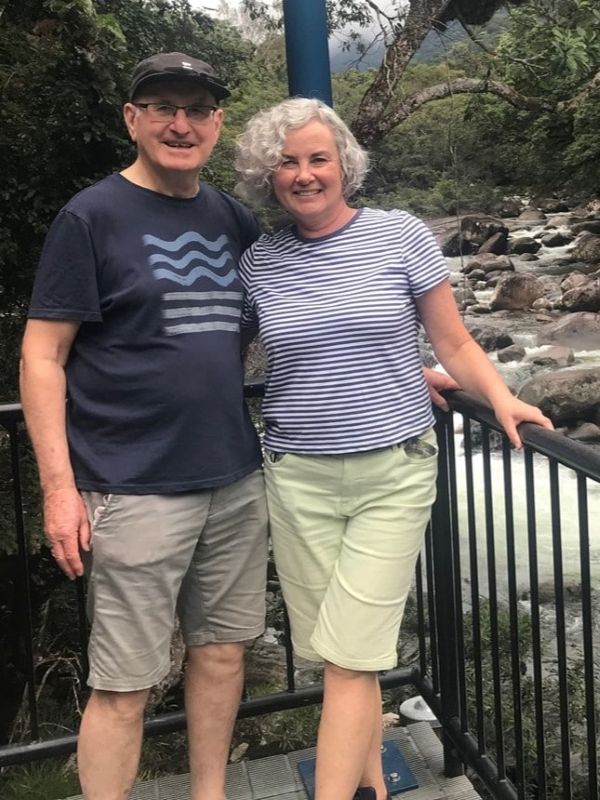
The funniest moments at College were the pranks we played on one another—it’s hard to beat the fish head hidden in the hollowed-out library book. And then there was speech class with Deidre Sneddon. It wasn’t intended to be funny, but it certainly provided some much-needed light relief. I can’t say I have a standout “worst memory”—there were challenges, of course, but nothing that overshadows the positive.
The most significant memories aren’t tied to big events but to the small, meaningful conversations—often in the library—with more mature students. Issues raised in lectures were teased out in those discussions, and I think I learned as much through dialogue as I did from books. My time at College coincided with the height of the Charismatic movement, so there were many personal stories to hear and unpackage, shaping my theology and ministry.
College laid foundations that have served me well through three pastorates and 44 years of ministry. Of course, there’s a lot that College can’t teach—those lessons come “on the job” and through what might be called continued education.
I began as a full-time pastor at Remuera while still a student at College. Those ten years were followed by 30 years as Lead Pastor at Invercargill Central, and then 3½ years in Thames. Throughout many of those years, I also served on the Assembly Council—a role that helped keep this Southlander connected with the wider life and work of our Baptist family of churches.
There have been far too many good times to even begin to list them. The hardest times, however, are etched deeply: the death of my wife Robyn in 2004, and the loss of our 11-year-old grandson Noah in 2020. Yet even in grief, God has been faithful. I’m deeply grateful for Zoe, who has been my wife and ministry partner these past 15 years.

Mark and Robyn Pierson
When I think of Baptist College during the Victoria Avenue days, two things immediately come to mind.
First, Kevin Schulz. I believe he was Student President the year before we arrived. He wrote us a warm, welcoming letter that made a real impression. His generosity and pastoral care have remained a model to me ever since.
Second, babies. Lots of them—ours and others’. It was a season of nappies, noise, and community.
Some of the funniest moments from College still make me smile. There was the time Colin Pyle rolled the hired tractor on a work day—a moment of chaos no one present will forget. Then there was the infamous incident when the “Peanut Butter Liberation Front” kidnapped Dr. Bob right in the middle of his Open Day speech on the front steps of the big house. The perfect combination of rebellion and good humour.
Of course, there were challenges too. Weeks of chokos—served every way imaginable except flavoursome—courtesy of Anne and Betty’s faithful catering. The mystery supplier turned out to be Bob Fergusson, which explained a lot. But harder than that was the moment I was told, at the door of the interview room, that the Board had changed its mind and Robyn would no longer be allowed to be part of my College interview. That decision left a mark.
But what stands out above all else from those years is simple: relationships. Lifelong friendships were formed at College, and they’ve remained among the most significant gifts of my life. If I had to name the thing that’s helped me most over the past 50 years, it would be those relationships—along with learning to ask good questions.
Over the last 45 years, ministry has taken us to many places and seasons. From College, we went to Wainoni Baptist (Pebblebrook 3 and 4), then on to Wellington Central Baptist (Mainstage Festival 1, 2, 3, with Robyn also undertaking ECE training during that time). I later served in interim roles at Lower Hutt Baptist and at Auckland Baptist City Mission, which became Cityside Baptist. That led to involvement with Urban Seed in Melbourne, the Creation Care Study Program in Auckland, and a season with World Vision New Zealand as Christian Commitments Manager. More recently, I’ve served as Lead Pastor and Curator of Rhythms of Grace Church in Auckland and continue to offer Tea & Be experiences. Robyn retired from ECE teaching a couple of years ago.
So much has happened, but the foundations laid at College—especially through community, questioning, and calling—continue to shape the journey.
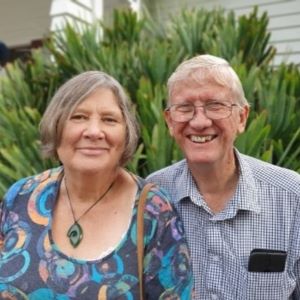
Paul and Adrienne Thompson
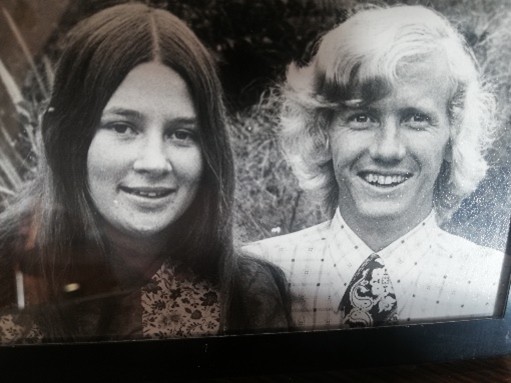
Paul and Adrienne during their college days
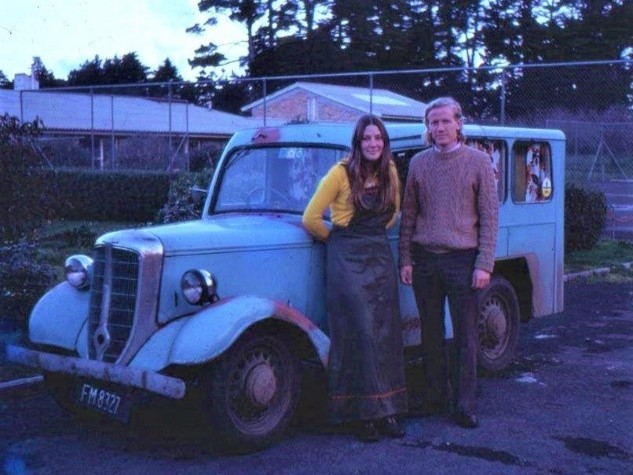
Paul's car during college
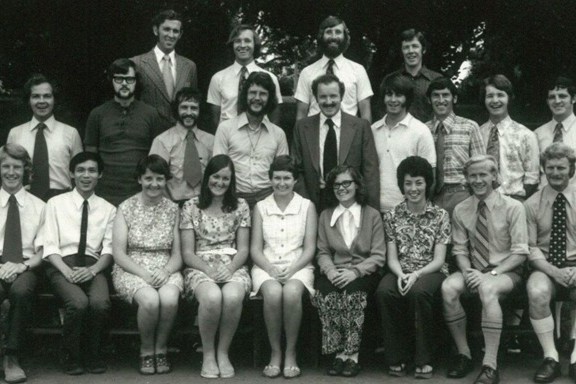
1975 Baptist College Students
When I think of Baptist College in the Victoria Avenue days, the first image that comes to mind is Dr Bob Thompson leaning over the lectern with piles of books on either side. That image is etched into memory—and probably counts as one of the funniest memories too!
I don’t really have any standout “hard” or “worst” memories from College. I was never an ‘A’ grade student and had to work hard at my studies—but I certainly didn’t make it easy for myself by choosing to take both Greek and Hebrew!
The most significant part of my time at College was the year I was assigned to work with the Baptist Māori Department in Pukekohe. I arrived at College confident that God had called me there for the next stage of life, but unsure where it would ultimately lead. In high school, I had been headed toward engineering. Through my university years, God redirected that toward working with people—but I didn’t yet know in what context.
That year in Pukekohe helped clarify things. It confirmed that cross-cultural ministry was where I was best suited and where I felt most at home.
What has helped me most over the past 50 years has undoubtedly been the four years of solid biblical and theological study. That foundation proved invaluable—especially during the 20 years we spent in Bangladesh. Growing up in a Christian home with regular Bible reading gave me a grounding, but College introduced me to scholarly exegesis and a broader view of Scripture and biblical history. Ironically, history had never been a favourite subject of mine at school—but I found church history to be both fascinating and important.
Some students found the introduction to liberal theologies unsettling. For me, those ideas challenged me to engage with my faith at a much deeper level—something that’s stayed with me.
One memorable moment was getting married at the end of my second year and moving out of my room in Driver Wing into the little flat at the end of North Wing—a significant shift in every way!
Ministry Journey – A Brief Overview
After graduating from College, I began pastoral ministry at Wellington Central Baptist in 1979, gaining New Zealand experience before serving in Bangladesh (1979–1999). There, I worked in evangelism, church planting, leadership training, publishing, and development aid, eventually becoming Team Leader for NZBMS. A sabbatical at Fuller Seminary in 1987 deepened my understanding of Islam.
Back in New Zealand (1999–2000), Wellington Central Baptist supported our resettlement. From 2000 to 2005, I worked with Scripture Union NZ and also served on the board of the Refugee & Migrant Service (2000–2012).
In 2006–2007, I completed a Master’s in Development Studies, focusing on the Freeset business model, while working part-time for CASI. I also served on the NZBMS/Tranzsend/Arotahi Council (2004–2007).
In 2007, I joined Banzaid, managing funding for international development projects in partnership with the NZ Government. Highlights included work in Bangladesh, Samoa, Papua New Guinea, and India. I was also involved with APBAid and served six years on the board of the Council for International Development (CID).
Retirement Years
Since retiring in 2019, I’ve continued to stay involved, taking on a part-time (1 day/week) role as Property Manager for Central Baptist and a 5-hour/week role as Secretary/Treasurer for the Lower North Island Baptist Association (formerly the Wellington Association, now expanded to include Taranaki and Hawke’s Bay through to Wellington). This helps keep me in touch with what’s happening across the Baptist movement.
We’re now the proud parents of four children and grandparents to three. As I reflect on these years, I’m deeply grateful for the foundation laid at Baptist College—especially the relationships formed and the training that shaped a lifelong call to cross-cultural ministry and social justice.

Shania Qiu and her daughter
Studying at Carey was the foundation to my ministry and life. I always make my priority to serve God and serve where He leads me. Currently I have two jobs: I help my daughter who owns MissMoo’s Kitchen, a café in St Heliers; and I run an online church. I pray MissMoo’s kitchen will be a place where people learn about the gospel. Our online church is global, and through zoom, we are meeting with people across the world. I preach at church and still lead a life group. Carey has helped me to understand the Bible better and teach others from what I have learnt.
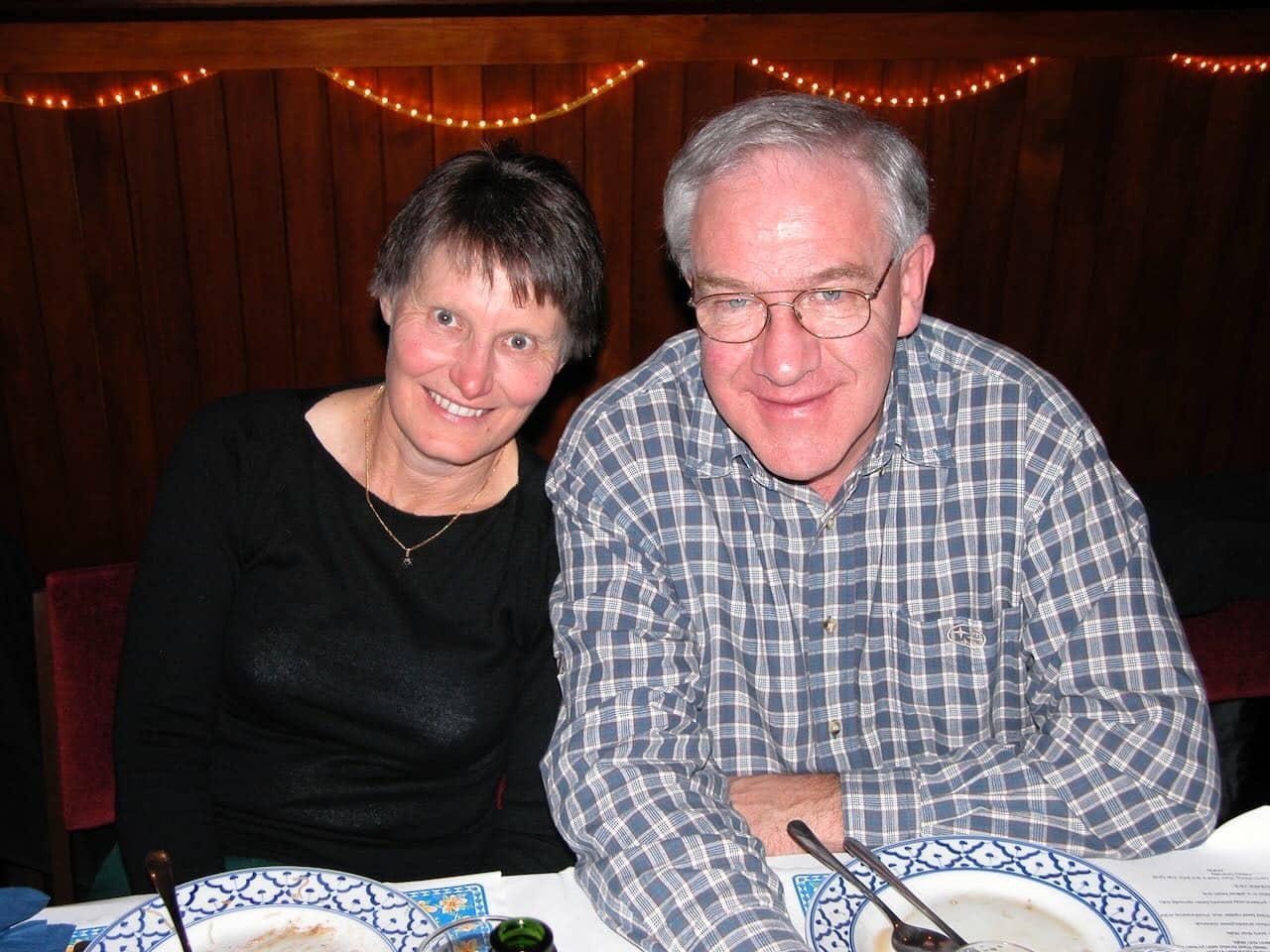
Kelvyn and Mary Fairhall

The 1974 year group
Secondly, I am thinking about the extracurricular activities that consumed some of my mental and physical energy. I had some input into obtaining the first photocopier for the college office and making the facility available to students. I recall establishing along with Iian Jackson a bulk buying arrangement for groceries for the benefit of married students. And of course, there were the obligatory hours of gardening and other maintenance around the Victoria Avenue property, though there was a little relief for those of us who lived elsewhere and had our own grounds and homes to tend.
It was a 23km drive from home to college which I did often on 2 wheels and am thankful I never experienced a mishap on the Southern Motorway. I would not attempt such a venture today. Thinking about vehicles, there was usually enough parking in the dedicated motorbike area, and the semicircular driveway if using the car, but if you were late then the roadside parking was necessary. I have always had to have some practical project on the go so in our third year purchased by tender a burnt-out Austin J4 van that Robin Williams and another mate from Manurewa helped me repair. This took us to a 1976 summer assignment at North East Valley church and was the transport for me and others in a student team that visited a number of churches around the South Island in the 1977 May school holidays.
I guess for me the “learning by doing” was a significant portion of my preparation for pastoral ministry. I had the yearly placements at Grey Lynn, Manurewa, and Mt Albert, while my first summer placement was at Pukekohe.
I was privileged to stay on there for the second-year placement where I did most of the morning service preparation and preaching until Doug Salthouse was appointed as Pastor in about September 1975. That summer I was able to employ a couple of college boarders as a painting gang with the first job being the three houses owned by the Pukekohe church then the church interior. Later with other students we painted the exterior of the Ponsonby church.
Going to pastor the Stratford church following completion of the college 4-year training was a wonderful experience. Half the church were farming families and I was able to help in the milking sheds, and sometimes solo while the family were away. A different aspect to ‘pastoral’ ministry. Joining the fellows in watching mid-week international rugby matches in New Plymouth was another aspect. There were of course moments when I was held to account by our Father in Heaven such as when one of the saints made a comment in a meeting ‘Who does he think he is – God?’
A significant ministry developed in Taranaki initiated by people from Stratford – the provision of an alcoholic rehabilitation centre. Triumph House became the property name for a disused dairy factory and 4 accompanying houses we were able to purchase through the Ngaere Support Centre Trust that Stratford, New Plymouth and Hawera churches formed and governed together. It was my first foray into administering trusts and community ministries, and what a privilege to see some men and women become followers of Jesus as a result.
The Church Administration course at College must have had some impact as well as my accountancy training and work before theological study. Because when coupled with the pastoral ministry experience of Stratford, Balclutha, Wanganui Central, and Kawerau churches I was uniquely shaped to take the roles of Accountant for the Baptist Union and Missionary Society followed by National Administrator for the Baptist Union. God gave me these for the second half of our ministry within the Kingdom.
An unanticipated interlude arose after retiring from the Baptist National Centre as we took a role in Christchurch mid 2012 for 18 months helping churches with their earthquake claims and pastoring the pastors. A new experience in red and black country where people were still coping with the trauma, tired from the additional stresses, but also looking forward to new opportunities.
As I look back there are some enduring effects in other people’s lives that we have been blessed to see or learn about for which we praise God and are very thankful. There are also some entities I was one of God’s instruments in establishing that continue to serve the ministry of our churches such as CATAS – the accounting and payroll company that has grown its client base to include other denominations and is now able to provide some financial support to arms of our Baptist movement.
In the mystery of God’s leading through life we could not have dreamed or planned such a rich, wide ranging, sometimes tortuous, and fulfilling journey as we have sought to “trust and obey”.
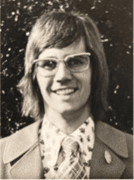
Richard during his college days

Richard and Margaret Coombs
When I think back to Baptist College during the Victoria Avenue days, the first things that come to mind are the friendships—made, developed, and continued over the years. And then there’s Hobson House—the old student accommodation that later became the Bolivian Embassy and, more recently, the home of Grant Dalton of America’s Cup fame. In 2021, it was sold for just under $20 million. Quite a legacy!
One of the funniest memories is from a class led by Dr Bob on the Holy Spirit. He often walked into class with a towering pile of books, and on this particular day, after settling in, he suddenly remarked, “I’ve left the Holy Spirit upstairs!” A well-timed line—intentional or not—that gave the whole class a good laugh.
The most significant part of College for me was having time set aside to study God’s Word. Add to that the shared experiences, conversations, and debates with friends who were all preparing for ministry, and it was an incredibly formative season. I found it a time of growing in both gifts and self-awareness.
Looking back, I realise that what helped me most wasn’t just one class or one moment, but the entire experience—like daily meals. I don’t remember every dish I’ve eaten, but they’ve nourished me and kept me strong. My time at College was like that. It prepared me well for both preaching and pastoral ministry, and I’ve often found myself grateful when talking to pastors trained in other places. Our College’s focus on fieldwork, practical assignments, and the variety of experiences we had was truly a cut above.
It might seem surprising, but I’ve also really come to value the preaching and speech classes—especially those led by Ruth Pidwell. Preaching doesn’t always hold the same value it once did, and it can be frustrating to hear speakers mumble their way through a message. Clear, confident communication matters, and I’m thankful College emphasised it.

Neil and Barbara Perry
In 1981, Wanganui Central Baptist took a chance on a young couple with a heart for youth and a calling toward mission. I was brought on as Youth Pastor for two years—a role that not only nurtured our love for ministry but also prepared my wife Barb and me for the mission field abroad.
Just two years later, we found ourselves in one of the most remote corners of Papua New Guinea, serving with the New Zealand Baptist Mission. Life was raw, challenging, and full of purpose. We were “living the dream,” or so it seemed. But mission life, as many will know, often leads to new and unexpected paths. For us, it was a surprising one: Carey Baptist College.
It wasn’t my idea. In fact, I was reluctant. But Barb had a clear leading from the Lord—so clear, in fact, that I couldn’t ignore it. And so, with a sense of divine nudge (and maybe a little human push!), I enrolled at Carey and returned to New Zealand.
My secondary school days had been filled with sport and fun, but not much study. So walking into an academic environment was a shock to the system. I struggled—with routine, with motivation, with focus. For months, Psalm 13 became my daily prayer: “How long, Lord? Will you forget me forever?”
It was a raw and honest cry, and for 10 months, I felt every word. Yet the psalm ends with hope, and though I couldn’t fully feel it at the time, I held on to those last two verses as a prayer of faith.
A turning point came at the end of that first year, during a summer assignment. Something shifted. A fog lifted. I found clarity. The resistance to study melted away, and a joy began to take its place—a joy in learning, in ministry, and in the calling that God had placed on our lives.
One of the greatest encouragements during that time was Principal Brian Smith. His deep cross-cultural experience and simple but profound teaching helped bring order to my chaotic thinking. His diagrams were masterpieces of clarity, and his willingness to listen reminded me I wasn’t alone in the struggle.
The following two years at Carey weren’t without their challenges, but they became a season of deep discovery—about Scripture, about myself, and about God’s unfolding mission and my place in it.
Since those days, Barb and I have had the privilege of serving in many places: from Papua New Guinea, Thailand, Macau, Auckland in the Tranzsend office, and pastoring in two New Zealand Baptist churches. It has been a life filled with adventure, questions, service, and joy.
Looking back, those final verses of Psalm 13 no longer feel like a distant hope. They’ve become a lived reality: “But I trust in your unfailing love; my heart rejoices in your salvation. I will sing the Lord’s praise, for He has been good to me.”
And indeed, He has, and still is!

Jeremy preaching in 2022

Jeremy at his commissioning service at North Porirua Baptist Church in 2017
When you think back to your time at Carey, what stands out? Can you share a memorable moment or story?
I’m guessing you are looking for something a bit more substantial than the epic table tennis battles. In all seriousness, a lot of my memories are around relationships. The conversations on breaks. Serving people lunch at the community lunches. The one-on-one discussions with the lecturers. I feel like the discipleship and mentoring that happened within the Carey community was a huge strength for me (I was quite young when I studied).
One memorable moment that I still share today is when I was studying ‘Worship Wisdom Literature’ with Brian Krum. When we got to the week before doing ‘Songs of Solomon’ Brian Krum made the comment: “If you are not married you might need to bring a permission slip from your parents.” The class laughed. However, because I still lived at home, I got my Mum to write a permission slip. I walked into class the next week and handed Brian my note. Brian read it and just erupted in laughter. It took him a few minutes to recover and find himself so that he could read it to the class. Needless to say, it provided some great lighthearted humour for the entire class, to begin a very interesting session.
How did your studies strengthen your faith and deepen your discipleship?
I remember one of our lecturers saying: “Your degree teaches you how to study and do good scholarship which you will use in the future.” I have found this very much to be true. Can I remember everything I studied (almost 20 years later). Nope. But I believe I know how to do good study, and I know how to critique and determine what sources can be trusted and what sources I need to proceed with caution. It’s taught me to not just believe everything I read (which is something the whole church needs to learn). One class that still sticks with me however is my ‘Christian Counseling’ class and in particular the session on ‘grief.’ What I learnt in this class, I’m still using to this day and it even helped me through my own grief when I lost my dad a few years ago. And like I said above, the mentorship and discipleship was so important to me. I was young and in a way, I was a sponge and I’m so pleased I had lecturer’s and classmates that helped me grow in my faith to help form me into a better disciple of Christ (and yes, some of the discipleship even happened over table tennis or tennis).
What have you done since Carey, and how has your training influenced your ministry and leadership?
Since Carey I did 6 years as youth pastor at Papakura East Presbyterian Church. I did 4 years as youth pastor at East Taieri Presbyterian Church in Mosgiel, Dunedin. And at the end of this year, I would have done 9 years at North Porirua Baptist Church in Wellington as Youth Pastor and now Senior Pastor.
My studies have been crucial to me. Every week I’m using the skills I learnt at Carey as I prepare sermons, do research and help lead God’s people. Not only that but my time at Carey gave me a wealth of people who I can contact if I do need a little bit of advice or support as I navigate different areas (of theology or life). In a way, I wish I could go back to Carey and study again (maybe one day in the future).
90 Credits
120 Credits
15 Credits
15 Credits
15 Credits
30 Credits
30 Credits
30 Credits
30 Credits
30 Credits
30 Credits
Further, the course brings Dietrich Bonhoeffer into conversation with Bull Hybels, the former pastor and leader of Willow Creek. Willow Creek proves to be a valuable case study in which issues of ego and power surface. It is important to understand them rightly and posit how Bonhoeffer’s thought and practice provides a needed corrective.
30 Credits
30 Credits
30 Credits
Through the course you will follow a process of identifying an area of research that is of interest to you and shaping a research project directed towards answering a specific focal question, engaging relevant fields of study and utilizing appropriate research methods. Through the process your cohort will be a supportive community engaging with each other’s areas of interest and contributing to your development as emerging researchers. By the end of the course, you will have designed a research project such as would be suitable for a postgraduate research essay or thesis and presented this as a full Research Proposal.
15 Credits
The Integrative Project is typically undertaken in the final year of the Bachelor of Applied Theology programme. It is an opportunity for you to draw on your learning across the Integrative Theology curriculum to resource understanding and faithful action in relation to an issue at the intersection of their faith, context, and practice. Utilizing the integrative framework of Word, World, and Work you will make use of a range of sources of knowledge and approaches to bring your faith, contexts, understanding, and examples of practice into conversation with each other. Having considered the topic and questions that arise in relation to it from within each of those areas, you will develop a Christian response to the issue that demonstrates attentiveness to faith, context, and practice.
15 Credits
15 Credits
15 Credits
15 Credits
15 Credits
15 Credits
15 Credits
15 Credits
15 Credits
15 Credits
15 Credits
15 Credits
15 Credits
15 Credits
15 Credits
15 Credits
15 Credits
15 Credits
30 Credits
This course allows you to receive accreditation for a supervised ministry internship undertaken within an appropriate context. Over the year you will perform 200 hours of practical ministry internship and will reflect upon this with a Supervisor, in an online peer group, and in assignments.
RESTRICTION: This course is available only by arrangement with the Programme Lead of Field of Education prior to enrolment.
30 Credits
This course allows you to receive accreditation for a supervised ministry internship undertaken within an appropriate context. Over the year you will perform 200 hours of practical ministry internship and will reflect upon this with a Supervisor, in an online peer group, and in assignments.
RESTRICTION: This course is available only by arrangement with the Programme Lead of Field of Education prior to enrolment.
30 Credits
RESTRICTION: This course is available only by arrangement with the Programme Lead of Field of Education prior to enrolment.
15 Credits
PREREQUISITE: This course is restricted to those achieving merit or excellence in MF601 Reflective Field Education 2.
15 Credits
PREREQUISITE: This course is restricted to those achieving merit or excellence in MF501 Reflective Field Education 1.
15 Credits
15 Credits
15 Credits
You will reflect upon and critically evaluate the significance of these selected personalities, topics and themes for the historic development of Christianity and their ongoing influence on Christian life and leadership today.
15 Credits
15 Credits
15 Credits
15 Credits
15 Credits
15 Credits
15 Credits
The Research Essay is a maximum in length of 6,000 words including footnotes and excluding bibliography.
15 Credits
15 Credits
15 Credits
15 Credits
15 Credits
Your skills will be developed in exegesis, analysis of texts, research and presentation and your theological awareness and interpretative competencies will be cultivated.
15 Credits
15 Credits
Your skills will be developed in exegesis, analysis of texts, research, and presentation; your theological awareness and interpretive competencies will be cultivated.
15 Credits
15 Credits
15 Credits
15 Credits
15 Credits
15 Credits
15 Credits